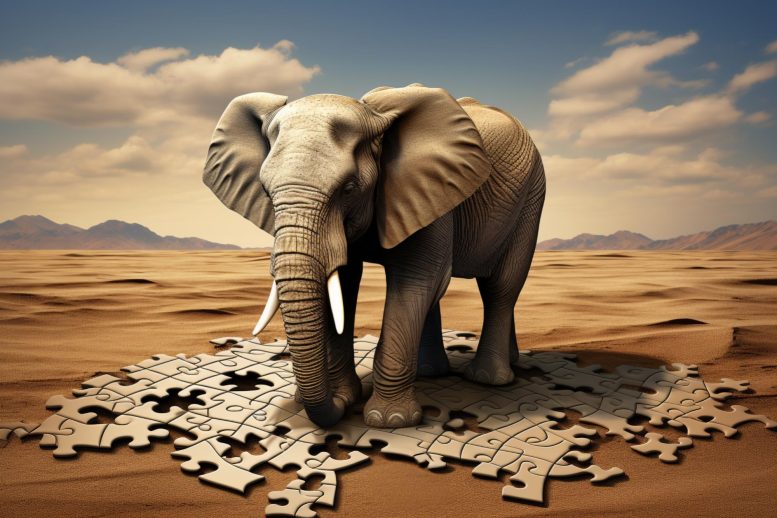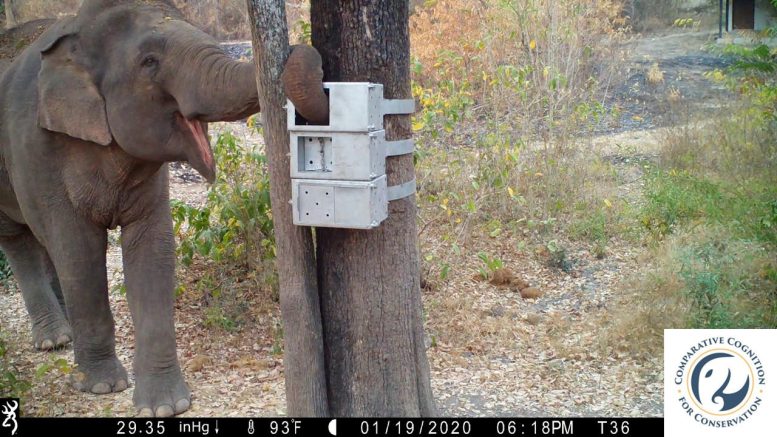
Researchers at the CUNY Graduate Center and Hunter College studied the problem-solving abilities of wild Asian elephants at Thailand’s Salakpra Wildlife Sanctuary. Using puzzle boxes filled with jackfruit, they found varying levels of innovative behavior in elephants accessing food, highlighting the potential impact of elephant cognitive flexibility on conservation and human-elephant conflict mitigation.
A recent study examines elephants’ capacity for innovation and overcoming obstacles to access food sources.
Individual innovation is often viewed as a marker of intelligence among different species. Elephants, in particular, have garnered attention from researchers due to their advanced problem-solving skills. A recent study published in the journal Animal Behaviour outlines the results of a half-year study. This research observed the capabilities of individual wild Asian elephants to reach food by solving puzzles that opened storage containers.
“This is the first research study to show that individual wild elephants have different willingness and abilities to problem solve in order to get food,” said the study’s lead author Sarah Jacobson, a psychology doctoral candidate studying animal cognition at the CUNY Graduate Center and Hunter College. “This is important knowledge, because how animals think and innovate may influence their ability to survive in environments that are rapidly changing due to human presence.”
A camera trap screenshot captured a bull elephant interacting with one of the puzzle boxes in the Salakpra Wildlife Sanctuary, Thailand. The configuration of the puzzle box is a push door at the top, pull door in the middle, and a slide door at the bottom. Credit: The Comparative Cognition for Conservation Lab, Dept of Psychology at Hunter College
Conducted at the Salakpra Wildlife Sanctuary in Kanchanaburi, Thailand, the study used motion-activated cameras to observe 77 wild Asian elephants who approached and decided whether to attempt opening puzzle boxes with three differently configured compartments that contained highly aromatic jackfruit. Depending on the compartment with which the elephant interacted, the jackfruit could be accessed by pulling on a chain so the door opened toward the elephant, pushing the door so that it swung open into the box, or sliding the door open to the right. The elephants had to independently interact with the puzzle boxes to discover how the compartments could be opened

A camera trap screenshot captured a bull elephant interacting with one of the puzzle boxes in the Salakpra Wildlife Sanctuary, Thailand. The configuration of the puzzle box is a push door at the top, pull door in the middle, and a slide door at the bottom. Credit: The Comparative Cognition for Conservation Lab, Dept of Psychology at Hunter College
Over time, 44 of the elephants who approached the puzzle boxes interacted with them, but there were individual differences in how innovative the elephants were. The researchers found that elephants who interacted with the puzzle boxes more frequently and with greater persistence were more successful in retrieving food from all three differently configured compartments. Overall, 11 elephants solved one compartment type and eight solved two compartment types. Five elephants solved all three types, and therefore were the most innovative.
“Conflict involving humans and elephants is increasing due to loss of natural habitat and agricultural encroachment into what is left of it,” said the study’s principal investigator Dr. Joshua Plotnik, a psychology professor with the CUNY Graduate Center and Hunter College, and Sarah Jacobson’s dissertation advisor. “Investigating innovation and problem-solving in elephants can inform our understanding of wild elephant cognitive flexibility and its potential impact on conservation management and human-elephant conflict mitigation.”
Reference: “Innovating to solve a novel puzzle: wild Asian elephants vary in their ability to problem solve” by Sarah L. Jacobson, Juthapathra Dechanupong, Wantida Horpiencharoen, Marnoch Yindee and Joshua M. Plotnik, 23 September 2023, Animal Behaviour.
DOI: 10.1016/j.anbehav.2023.08.019









If this is about Asian elephants, why is a different species, an African elephant, portrayed?